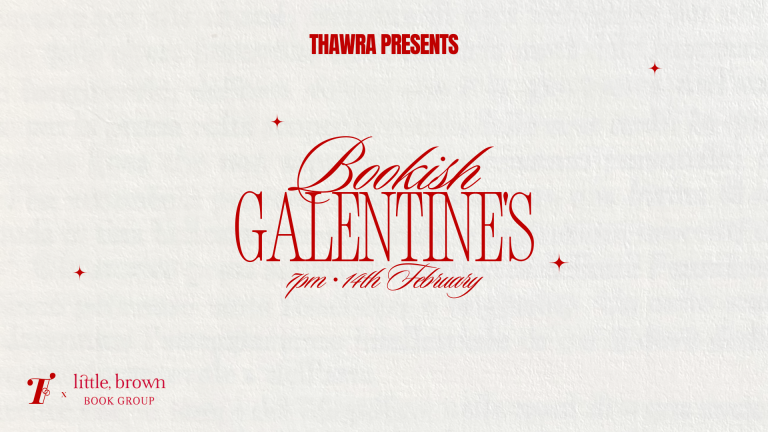Read an exclusive extract from The Riviera House . . .

‘I’m going to be late,’ Éliane said despairingly to Yolande who, at
age five, cared not a bit about Éliane’s obligations. In fact, it was obvious from Yolande’s clenched fists that a tantrum was bearing down upon all the Duforts and unless Éliane could find something other than a stale knob of bread for breakfast, Yolande would erupt and Éliane would miss her morning lecture at art school.
‘We’re all hungry,’ Angélique, the next oldest after Éliane, snapped at Yolande.
Éliane stared around at the grim and silent faces of her sisters. Twelve-year-old Jacqueline’s beseeching eyes were fixed on Éliane, willing her to calm both Yolande’s histrionics and Angélique’s temper. Ginette, eight, was yawning, having been woken by the fracas of raised voices.
She was going to be late. But it wasn’t her sisters’ fault that their parents threw every available franc, including all of Éliane’s pay, into their moribund brasserie and thus there was no food in the house. She whirled around and, despite the almost physical pain she felt at even contemplating it, she gathered all of her sable paintbrushes, threw them into a bag and said in a firm but loving voice to Yolande, ‘I promise you’ll have a croissant for breakfast tomorrow. But only if you get dressed for school and let Angélique do your hair.’
Yolande jumped up from her teary puddle on the floor, her blonde hair bouncing like her revived spirits as she threw herself at Éliane. ‘Merci,’ she whispered, head buried in Éliane’s skirt.
‘I love you,’ Éliane said, stroking her sister’s hair. Then, while Angélique was occupied with helping Ginette find her shoes, she spoke in Yolande’s ear, ‘Angélique is scared. It’s her first year of looking after you. Help her. Then she’ll see that she doesn’t have to worry about you so much.’
And to Angélique, as she kissed her goodbye, Éliane explained, ‘Yolande just wants to be loved. Hug her. Then she’ll behave.’
It had only been six months since Angélique’s fifteenth birthday. Her present had been to take over from Éliane the so-called privilege of getting the children ready for school, of bringing them home at the end of the day, collecting leftovers from the brasserie for dinner, feeding everyone and putting them to bed. Yolande and Angélique were each still chafing against the absence of Éliane, who now spent those hours at work.
Luckily Ginette and Jacqueline needed only a hug and a kiss and Éliane was able to leave, clattering around and around the whorling spiral of stairs from their third-floor apartment to the Galerie Véro- Dodat – a formerly resplendent Belle Époque passage couvert – below.
It was lined with once-grand but now mostly empty mahogany shop façades, separated by chipped marble columns and still-gleeful cherubs – despite the fact that most were missing at least a toe, if not an entire leg. The dank odour of stale coffee emanating from her parents’ brasserie settled around the globes of the old gas lamps, causing any patrons foolish enough to venture into the galerie to flee with their tastebuds unsullied.
Once out on the street, she continued on to the Musée du Louvre where she would study and work, unshackled from her sisters. The journey made her feel both the lightness of relief and the heaviness of loss as all the hugs and kisses and tiny affections were now Angélique’s. Éliane hoped her sister treasured those affections the way she ought to.
At the Aile de Flore – the wing of the Louvre that stretched along the river – Éliane ran straight up to the École du Louvre. She took her seat in the lecture theatre, looking over the rows of students for her brother Luc, but while Luc’s soul was devoted to art, his body worshipped at the cafés of Montparnasse and he was absent again. Monsieur Bellamy began to speak about Italian Renaissance painters and Éliane concentrated on long-haired and voluptuous women, on cherubs with all of their body parts intact, and on a chiaroscuro of religious chastisements. At lunchtime she left the building, never able to attend afternoon classes as her family needed the money she made from her work. Before she entered the museum proper and sat in her seat at the front desk, ready to direct patrons to the Venus de Milo and the Mona Lisa, she went to see Monsieur Jaujard, the Director of the Musées Nationaux. He had allowed her to continue at the École despite the fact that she could neither pay for her tuition nor spend a full day there.
‘Monsieur,’ she asked politely, ‘do you know where I can sell my paintbrushes?’ She pulled the items out of her bag, refusing to look at the last scraps of her childish dream of being a painter. ‘They’re good quality, sable, and might suit a new student perhaps?’
Monsieur Jaujard studied her treasures, kindly avoiding looking at her face, which she knew was reddened with both the shame of asking for another favour, and from the loss.
‘Leave them with me. I know a young man who might give you a good price.’
‘Thank you,’ she said, voice low, making herself give over the items by thinking of Yolande’s face tomorrow when she had croissants for breakfast instead of stale bread. Soon before the Louvre closed, Monsieur Jaujard appeared with an envelope, which he handed to Éliane. ‘For you.’
She opened it and discovered at least twice what she had hoped to get. Now it was Monsieur’s cheeks that flushed as she thanked him profusely, then left the museum, knowing she needed to spend the money that afternoon or it would be poured down the necks of
her father and his friends at the brasserie. Outside, the streets were quiet; the pall of Hitler’s unknown ambitions casting a shadow over Paris. Éliane slipped into La Samaritaine and found two cheap but adequate soutien-gorges for Jacqueline, who had needed a bra for several months but, even if
their mother had noticed her daughter’s maturity in the fog of her tiredness from working eighteen hours a day at the brasserie, there had been no money to do anything about it. Once Éliane had paid for the undergarments, there was enough left to buy croissants too.
She was smiling as she walked home, knowing her bags held both goods and happiness for her sisters, until someone carrying two gas masks stepped onto the sidewalk in front of her. She looked away. But on the other side of the street was another Parisian laden with
similarly disquieting objects.
Hitler could not really be coming for France. He had taken enough of Europe already. Still, she stopped walking and stared at her shopping bags. A bra would soothe Jacqueline’s growing embarrassment over her rapidly curving body; a gas mask might save her life.
‘Éliane!’
An arm slung itself around her shoulders and then, beside her on the path was her brother Luc. One year older and as blond as she, he was grinning in a way that always made her smile.
‘Do you remember my friend Xavier?’ Luc began, lighting a cigarette and speaking around it, his arm still draped over her shoulders so she had to hold her own hand up to shield the flame from the wind. ‘He was at school with me for a couple of years before his
family took him back to England?’
Éliane vaguely recalled a dark-haired boy, French-born but who’d mostly lived in England, being underfoot in the apartment several afternoons each week after school, many years before. He’d been a couple of years older than Luc, but Luc had decided that this
Xavier was going to be the next Picasso and had coerced Xavier into giving him painting lessons. Never mind that Luc was supposed to be helping Éliane look after the children; he’d spend the time until dinner painting, and would whisk away the evidence before their mother came upstairs to tuck them into bed, at which time Xavier would be gone. He’d been a secret, like Éliane’s own wish to be a painter – something that was spoken of only in the absence of parents on the top step outside the apartment at night, coffee in hand.
‘I ran into him today,’ Luc said. ‘In Montparnasse. He was there to see Matisse. Matisse!’
‘Matisse?’ Éliane repeated, laughing now at her brother’s enthusiasm.
‘Then he must have changed a lot since I last saw him. He used to wear those awful English short trousers—’
‘They don’t fit me anymore.’ A voice broke in from behind.
Luc laughed as if Éliane had said something hilarious and Éliane turned to see a dark-haired homme with oil-paint stains on his fingers. He was wearing a suit rather than short trousers, his shirt sleeves were rolled up, a jacket slung over his shoulder like a grown-up man.
‘You’re Xavier?’ she said disbelievingly.
He nodded. ‘And you must be Éliane. Although I don’t think I’ve ever seen you without at least one sister in your arms.’
‘Angélique looks after everyone now.’ As she spoke, she was, for almost the first time in her life, acutely aware of how simple her dress was. She’d made it from a remnant of fabric thinking it mimicked a Lanvin day dress she’d seen in a catalogue, but now it felt like a child’s attempt at playing dress-up.
Xavier, for all the paint on his hand, looked at least five years older than her, even though she knew he was only twenty-three to her twenty.
All at once, every church bell in Paris began to chime and Éliane snapped to attention. ‘I’m late,’ she said for the second time that day.
‘Give that to Jacqueline.’ She thrust her parcel at Luc. ‘I’ll have to go straight to the brasserie, otherwise—’
She stopped herself from saying it but her hand strayed to her cheek nonetheless.
‘Go,’ Luc said. But he and Xavier walked almost as fast as she did and it meant they saw what happened: her father roaring, even though it was only five minutes past six, ‘Where were you?’
‘Buying Jacqueline a bra, since nobody else will,’ she shot back.
Her father hit her, a stinging blow.
Out of the corner of her eye, she saw Xavier put a hand on the brasserie’s door. She only let herself breathe out when Luc pushed him away and up the stairs to the apartment, where Xavier would see that much of their furniture was gone – sold off to pay Papa’s debts – beyond the necessities of beds, a table, a sofa and six chairs.
Her mother, who had come out of the kitchen at the sound of the blow, caught Éliane’s eye and offered a sympathetic shrug.
If only Éliane could afford the luxury of a headache.
The brand-new escapist summer read from the internationally bestselling author of The Paris Secret!
ONE UNFORGETTABLE SUMMER WILL UNLOCK A DECADES-OLD SECRET . . .
'A meticulously researched novel with a perfectly woven dual timeline . . . I think The Riviera House is her best book yet' KATHRYN HUGHES, bestselling author of The Letter
FRENCH RIVIERA, PRESENT DAY
When Remy discovers she's mysteriously inherited a house on the French Riviera, she drops everything to go there, desperately seeking answers. There, she's shocked to uncover a catalogue of the artwork known to have been stolen by the Nazis during WWII, but there's something oddly familiar about one of the paintings . . .
PARIS, 1939
While working at the Louvre, bold and beautiful Eliane falls for talented painter Xavier. But when the Nazis occupy the city, Xavier leaves Eliane behind for the safety of England. Heartbroken, she throws herself into helping the resistance catalogue the priceless treasures the Nazis are stealing. But Eliane is playing a dangerous game, and soon realises she may have put her trust in the wrong person . . .
As Remy questions everything she thought she knew about her family, in the past Eliane finds herself in real peril. Could it be that the Riviera house holds more secrets than either Remy or Eliane are ready to face?
Set between war-torn Paris and the present day, The Riviera House is a breathtakingly beautiful story of love and sacrifice, from the internationally bestselling author of The Paris Secret. Perfect for fans of Rachel Hore, Lucinda Riley and Tracy Rees.







